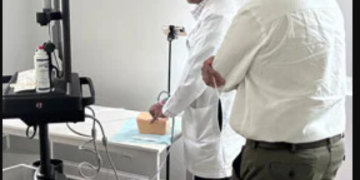Winemaking is both an art and a science, demanding meticulous attention to detail and the use of advanced technology to ensure consistent quality. The journey from grape to glass involves several critical steps, each contributing to the final product’s taste, aroma, and clarity. This article explores key technologies and machinery that play a vital role in maintaining high standards in winemaking, including Rotary Vacuum Filters, NDC Crusher Destemmer, Discharged Kieselgur Filters, and Ecoflot Batch Flotators.
Rotary Vacuum Filters – Ensuring Efficient Filtration
Filtration is essential in winemaking to remove unwanted particles, ensuring the wine’s clarity and stability. Rotary Vacuum Filters (RVFs) are highly efficient in this process, providing continuous and consistent filtration. These filters operate under vacuum pressure, drawing wine through a rotating drum covered with a filter cloth. As the wine passes through, solids are left behind on the cloth, forming a cake that can be easily removed.
The primary advantage of RVFs is their ability to handle large volumes of wine with minimal manual intervention. This efficiency reduces the risk of contamination and oxidation, preserving the wine’s quality. Additionally, the continuous operation of RVFs means that wineries can process more wine in less time, increasing overall productivity. The consistent performance of RVFs ensures that each batch of wine meets the desired clarity and stability standards, crucial for maintaining product quality and consumer satisfaction.
NDC Crusher Destemmer – Preserving Grape Quality
The initial processing of grapes is a delicate task that significantly impacts the quality of the final wine. The NDC Crusher Destemmer is designed to handle grapes gently, separating the berries from the stems without damaging the fruit. This machine uses a rotating perforated drum and beaters to achieve effective destemming while minimizing the risk of crushing the grapes prematurely.
By preserving the integrity of the grapes, the NDC Crusher Destemmer ensures that the juice extraction process yields high-quality must with fewer impurities. The gentle handling reduces the release of unwanted tannins and phenolic compounds from the stems, resulting in a smoother, more refined wine. The ability to maintain grape quality at this early stage is critical for producing wines with balanced flavors and aromas, reflecting the true characteristics of the grape variety.
Discharged Kieselgur Filters – Improving Brightness and Finishing
Once the primary fermentation is complete, the wine undergoes further clarification and stabilization processes. Discharged Kieselgur Filters, also known as diatomaceous earth filters, play a crucial role in this phase. These filters use kieselgur, a naturally occurring, porous material, to remove fine particles and microorganisms from the wine.
The use of kieselgur improves the brightness and finishing of the wine, enhancing its visual appeal and stability. The filtration process captures even the smallest impurities, resulting in a crystal-clear product. Additionally, the ability to discharge the used kieselgur automatically simplifies the cleaning and maintenance of the filters, reducing downtime and ensuring consistent performance. The improved brightness and clarity achieved with discharged kieselgur filters contribute to the overall quality and marketability of the wine.
Ecoflot Batch Flotators – Clarifying Grape Must
Clarification of grape must is a crucial step before fermentation, as it removes suspended solids that can affect the fermentation process and the final wine quality. Ecoflot Batch Flotators offer an effective solution for this purpose, using flotation technology to separate solids from the liquid must.
In this process, small bubbles are introduced into the must, attaching to solid particles and carrying them to the surface, where they can be easily removed. Ecoflot Batch Flotators are designed to operate in batches, providing flexibility and control over the clarification process. This method is gentle on the must, preserving its quality and enhancing the efficiency of subsequent fermentation. The clear, sediment-free must produced by Ecoflot Batch Flotators results in a cleaner fermentation process and a higher quality wine.
Conclusion
The journey from grape to glass involves numerous steps, each contributing to the final product’s quality. Advanced technologies such as Rotary Vacuum Filters, NDC Crusher Destemmer, Discharged Kieselgur Filters, and Ecoflot Batch Flotators play a vital role in ensuring consistent quality in winemaking processes. These solutions not only enhance efficiency and productivity but also preserve the intrinsic qualities of the grapes and the wine. By integrating these technologies into their production processes, winemakers can consistently produce wines of the highest quality, delighting consumers with every bottle.




























































